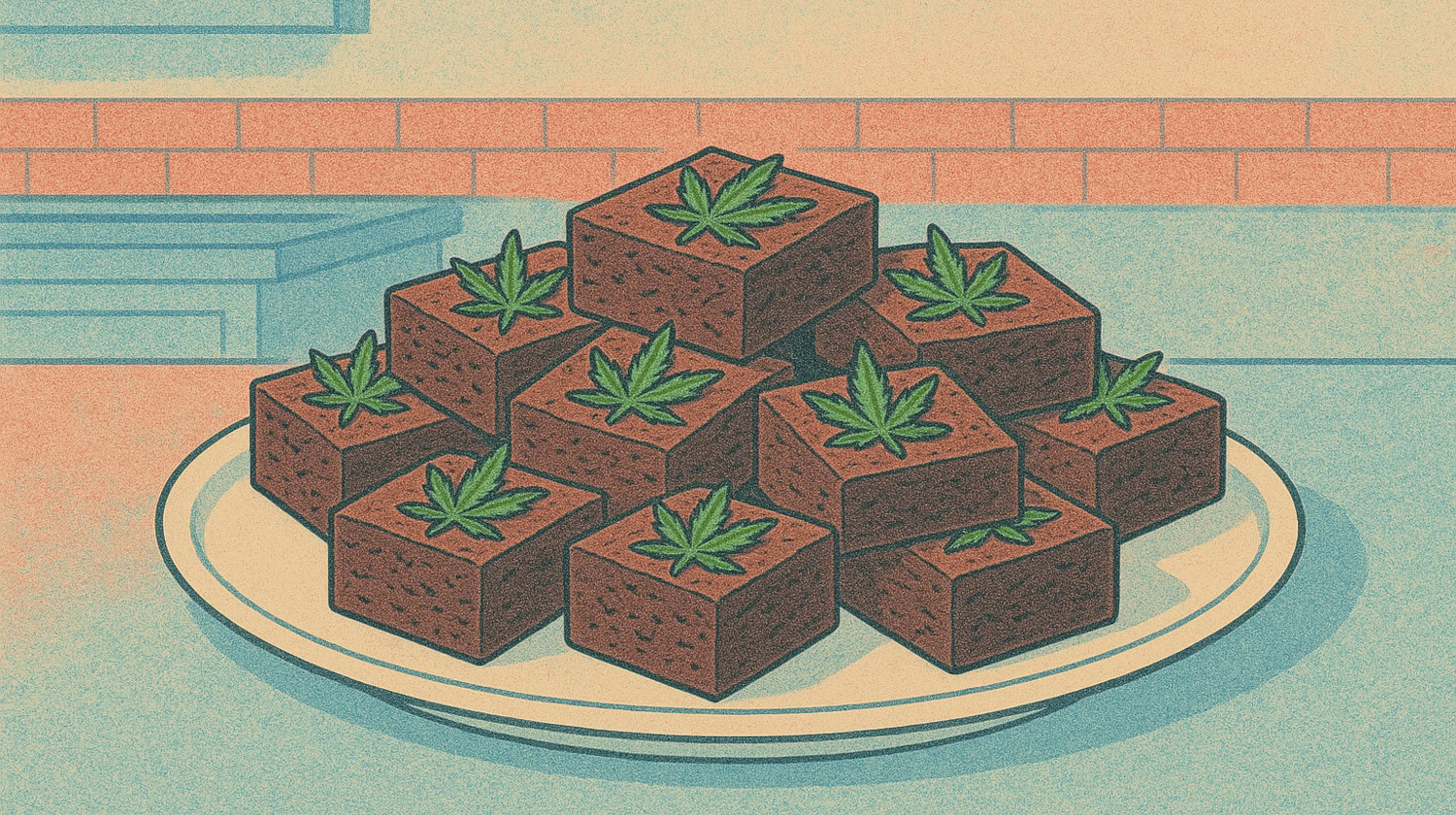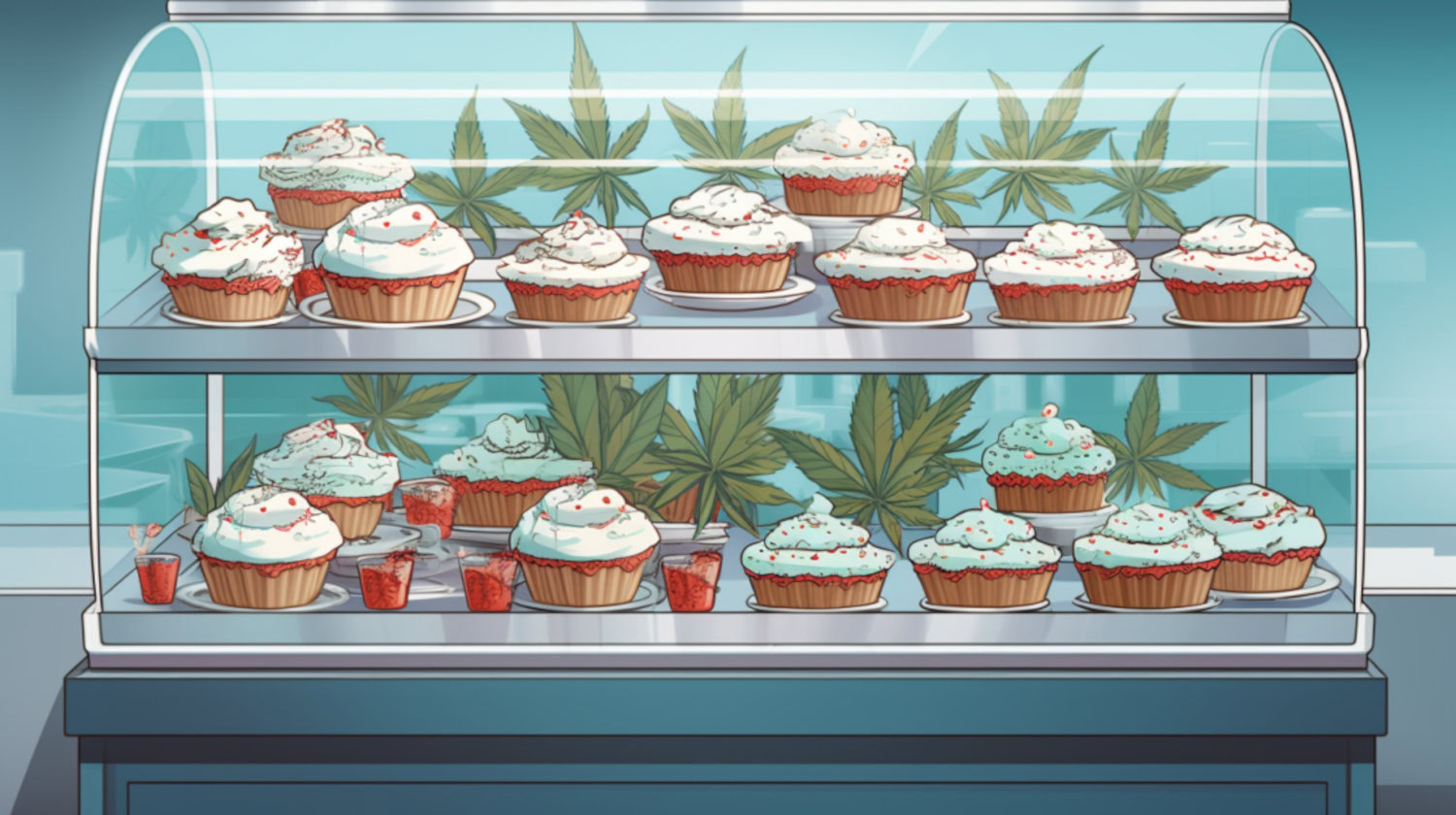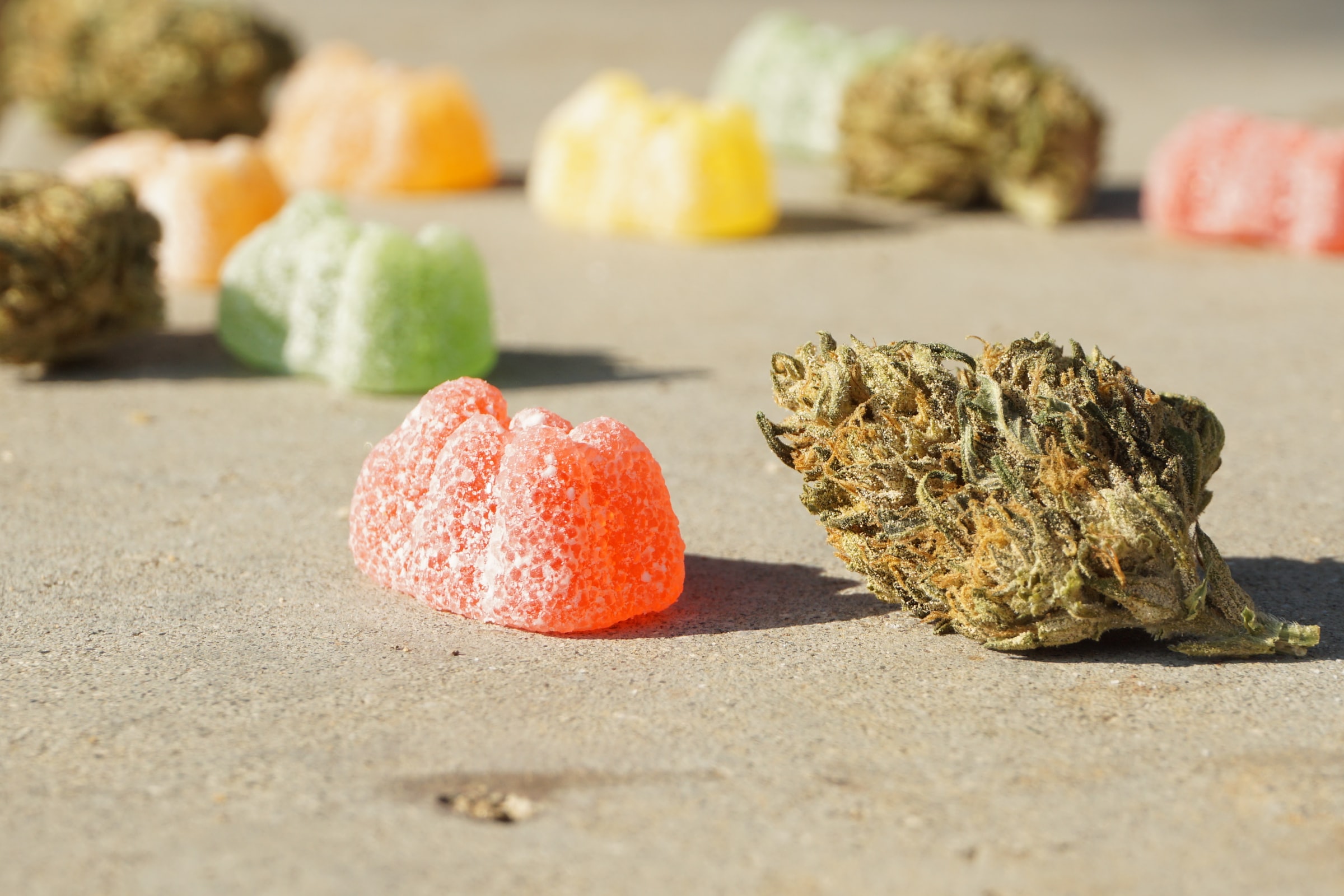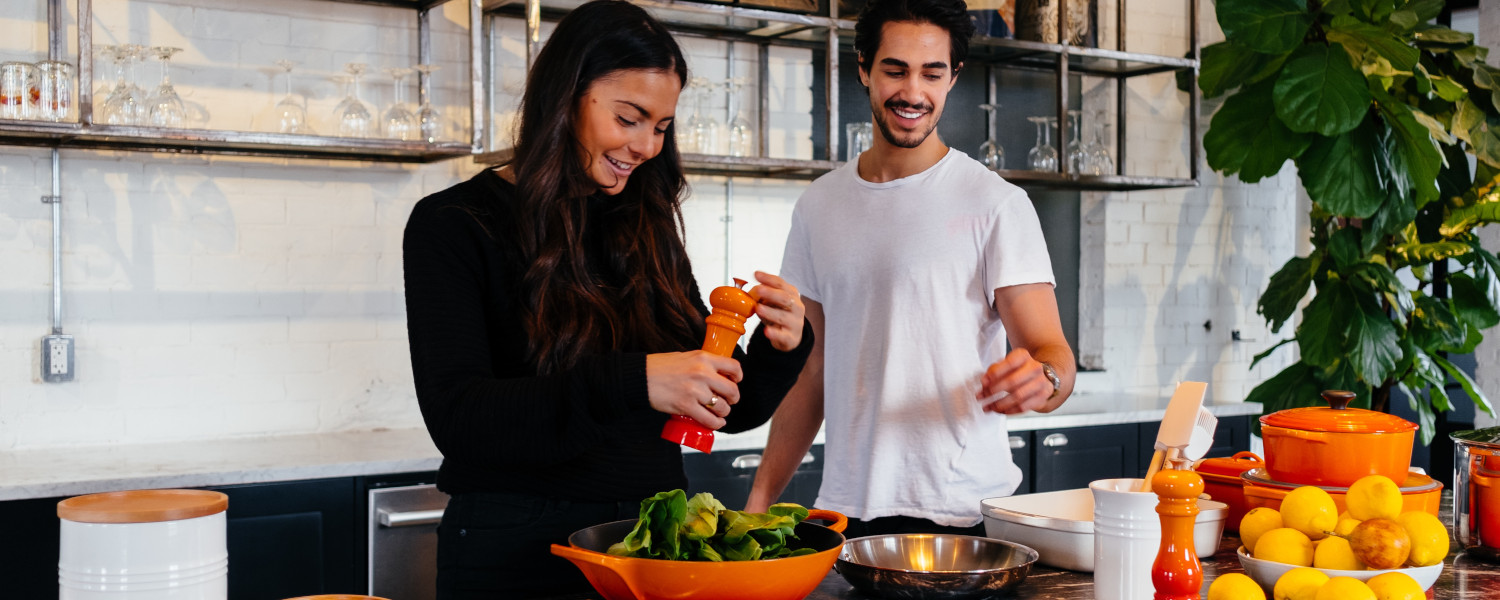Key Takeaways
- Edibles may not work because the dose is too low, they’re stale, your tolerance is high, or you have a genetic immunity.
- People with a certain gene variation have a type of liver enzyme that breaks down THC from edibles, making them immune.
- If edibles don’t work on you, smoking, vaping, concentrates, dry herb vaping, and tinctures are good options.
Edibles are supposed to be strong, right? …Right? If that sounds familiar, and you've been left asking: why don't edibles work for me, you're not alone. Even though edibles are one of the most popular ways to use cannabis, for some people, edibles are kind of a dud.
Like everything with cannabis, edibles affect everyone differently. There are a few main reasons why edibles might not be working for you. It might be your tolerance, the dose, or even a rare genetic immunity to edibles.
So, Why Don't Edibles Work on Me?
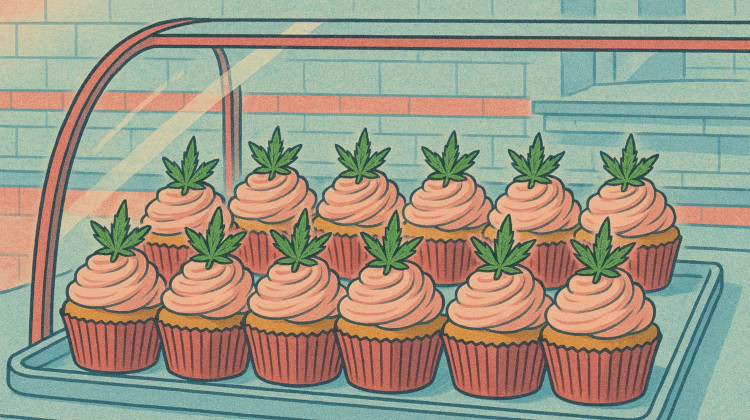
To get to the bottom of your lackluster edibles experience, it's best to run down a checklist of sorts, eliminating the most common and obvious reasons until you arrive at your solution. Most of the time, there's a simple explanation, but there are some more unusual reasons why those edibles aren't having the expected effect.
So, before you give up on edibles, ask yourself:
- Am I waiting long enough? Edibles can take a while to kick in. Depending on the edibles and your body, it can take anywhere between 30 minutes and 2 hours to feel their effects. Before you jump to conclusions, wait it out to be sure.
- Is the dose too low? Getting the dose right is always a key aspect of a positive cannabis experience. If you've waited and still don't feel the effects, it's possible the dose was just too low.
- How's my tolerance? On a similar note, your tolerance might be too high. An edible that may send someone else to the moon might leave you scratching your head wondering why you don't feel anything. You can either try a higher dose or take a tolerance break to bring it back down.
- Am I already too high? There's no need to be embarrassed; it happens sometimes. If you've already been smoking or had edibles earlier in the day, it's possible that a second round of edibles is just going to be maintaining a buzz, rather than getting you noticeably higher.
- Are the edibles stale? Yes, edibles do go bad, and cannabis loses potency over time. Stale edibles won't pack the same punch because some of the THC will have broken down over time.
- Did I forget to decarb? If you made the edibles yourself, you might have forgotten a crucial step. If you make edibles with flower that isn't decarbed or is only partially decarbed, your edibles won't have much, if any, THC.
- Could I really be immune to edibles? Yes, it's a real possibility. It's not common, but some people have different liver enzymes that make them effectively immune to edibles.
How Long Does it Take to Feel High From Edibles?
Have you ever noticed that when you smoke or vape cannabis you can feel the effects in a few minutes, but edibles take much longer? When someone smokes or vapes cannabis, cannabinoids like THC and CBD enter the bloodstream almost immediately and travel throughout the brain and body. With edibles, though, the body processes THC in the liver first. This delays the effects and causes them to last much longer.1
It can take between 30 minutes and 2 hours to feel the effects from edibles. For most people it's usually around an hour to an hour-and-a-half. Once the effects do hit, edibles typically last between 4 and 8 hours, but they can last for over 12, especially with a very high dose.2
Your Edible Tolerance May Be Too High
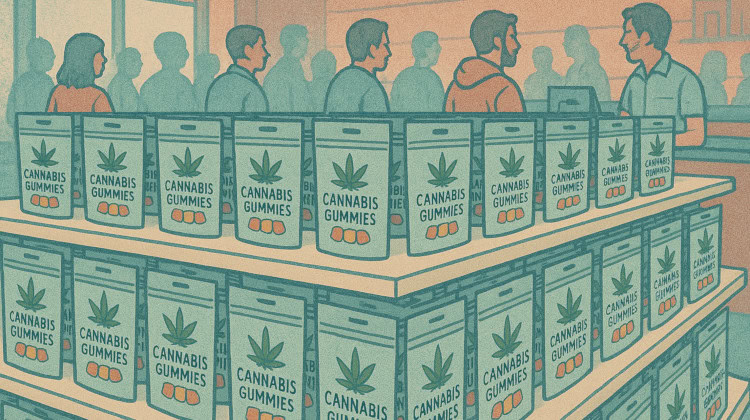
The more cannabis you use, the higher your tolerance is going to be. Using higher dose products like concentrates and edibles is going to increase your tolerance more quickly. The same can be said for using cannabis more frequently. So, if you think your tolerance is an issue, consider:
- How often are you using cannabis?
- Are you using a lot of concentrates, edibles, or high-concentration vapes?
- Do you use cannabis every day? Multiple times a day?
- How much weed does it typically take to get high?
Taking a tolerance break is an excellent way to give your body a reset. Stop using cannabis, even for a couple of weeks, and you'll be able to get better effects with less, which has the added benefit of saving you a few bucks.
Why Don't Edibles Work for Me? Am I Really Immune?
Believe it or not, if you've exhausted all the other possibilities and edibles still aren't working, you might be immune. Remember, the body metabolizes the THC in edibles through the liver first, before it has a chance to enter the bloodstream. That's why some people with a rare genetic variation don't get high from edibles. Their livers actually produce a different enzyme that breaks down THC before it can circulate through the body.
In a 2020 study, researchers looked into the effects of liver enzymes on the way the body metabolizes THC from edibles. They found clear differences in how efficient different types of enzymes were at breaking down THC by measuring the levels of metabolites left over.3 The types of enzymes the liver produces are determined by genetics, and there's unfortunately no way to change them. That means that if edibles aren't working on you because of the liver enzymes you have, they probably never will.
If Edibles Don't Work for Me, Are There Alternatives?
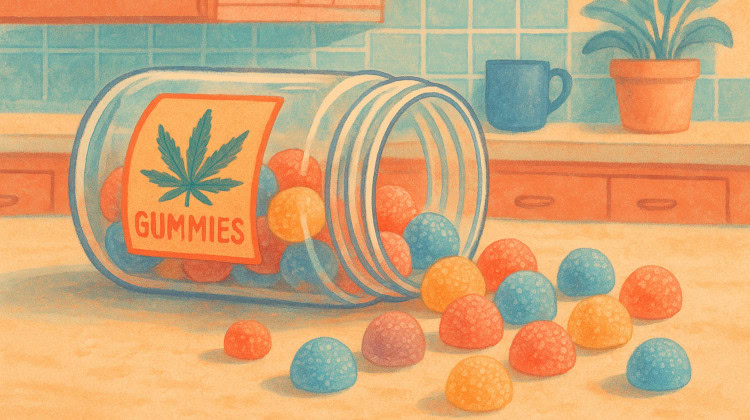
The good news is that even if edibles don't work on you, there are plenty of other cannabis products to try, including ones you don't have to smoke.
With legalization and the growing cannabis market has come an explosion of new products and ways to use cannabis. So, even if edibles aren't an option for you, there is plenty to choose from like:
- Smoking (joints, blunts, pipes, bongs, etc.)
- Vaping
- Dry herb vaping
- Hash
- Concentrates (dabbing, wax pens, moon rocks, etc.)
- Sublingual sprays
- Tinctures (when taken under the tongue)
Sure, smoking is the old standard, and there are more than enough ways to smoke cannabis and an ever-evolving array of inventive devices to get the job done, but not everyone wants to smoke. Vaping is a popular alternative that many users prefer, and quality vapes are available in the majority of legal markets.
Dry herb vaping is another interesting option that's been getting a lot of attention in certain cannabis circles. To the people that prefer dry herb vaping, it offers the perfect middle ground between smoking and vaping by allowing them to pick their favorite flower while avoiding the harsh smoke from combustion. Keep in mind, though, that any claims about vaping of any kind being safer than smoking need to be taken with more than a grain of salt, since the research is mixed at best.
Tinctures are another fantastic choice that doesn't require smoking. While tinctures might seem like an edible, there's a way to bypass those troublesome liver enzymes. If you drop tinctures under your tongue, the body will absorb the THC and CBD through the thin skin in the mouth, rather than sending them to the liver.
So, if edibles don't work for you, there are still plenty of options for a positive cannabis experience. If you'd like a little extra guidance, a medical cannabis doctor will be able to walk you through any difficulties you might be having with edibles and help you zero in on the best possible products to get the results you're looking for.
References
- Barrus DG, Capogrossi KL, Cates SC, et al. Tasty THC: Promises and Challenges of Cannabis Edibles. Methods Rep RTI Press. 2016;2016:10.3768/rtipress.2016.op.0035.1611. doi:10.3768/rtipress.2016.op.0035.1611 ↩︎
- MacCallum CA, Russo EB. Practical considerations in medical cannabis administration and dosing. European Journal of Internal Medicine. 2018;49(49):12-19. doi:https://doi.org/10.1016/j.ejim.2018.01.004 ↩︎
- Gasse A, Vennemann M, Köhler H, Schürenkamp J. Toxicogenetic analysis of Δ9-THC-metabolizing enzymes. Int J Legal Med. 2020;134(6):2095-2103. doi:10.1007/s00414-020-02380-3 ↩︎
The information in this article and any included images or charts are for educational purposes only. This information is neither a substitute for, nor does it replace, professional legal advice or medical advice, diagnosis, or treatment. If you have any concerns or questions about laws, regulations, or your health, you should always consult with an attorney, physician or other licensed professional.

